Crystal Clear: 5 Ways to Easily Remove Hard Water Stains from Glass
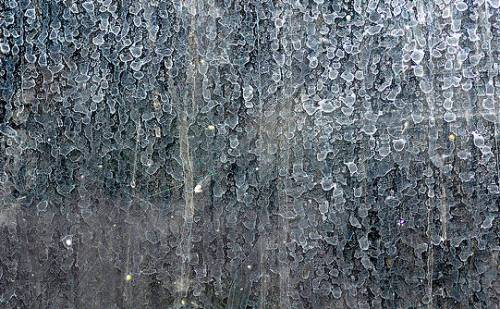
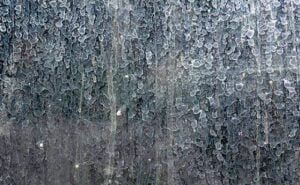
Have you ever looked at a beautiful glass surface, only to be disappointed by the unsightly hard water stains that seem to be etched into the glass? Hard water stains can be stubborn and difficult to remove, but don't worry - we've got you covered! In this post, we'll share with you some simple and effective methods to remove hard water stains from glass, leaving your surfaces crystal clear and sparkling once again. So, say goodbye to those pesky stains and hello to a crystal-clear view!
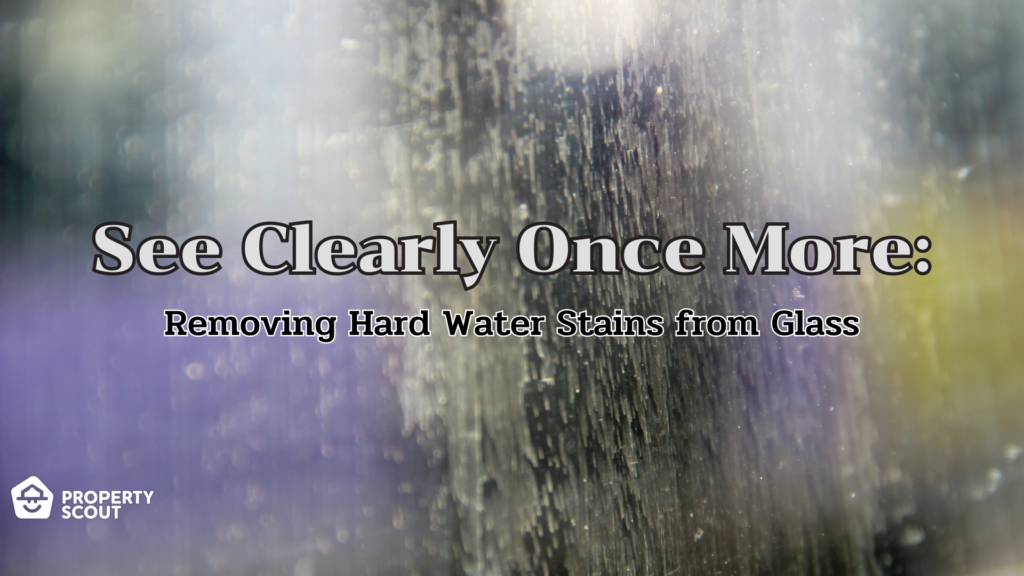
Understanding Hard Water Stains on Glass
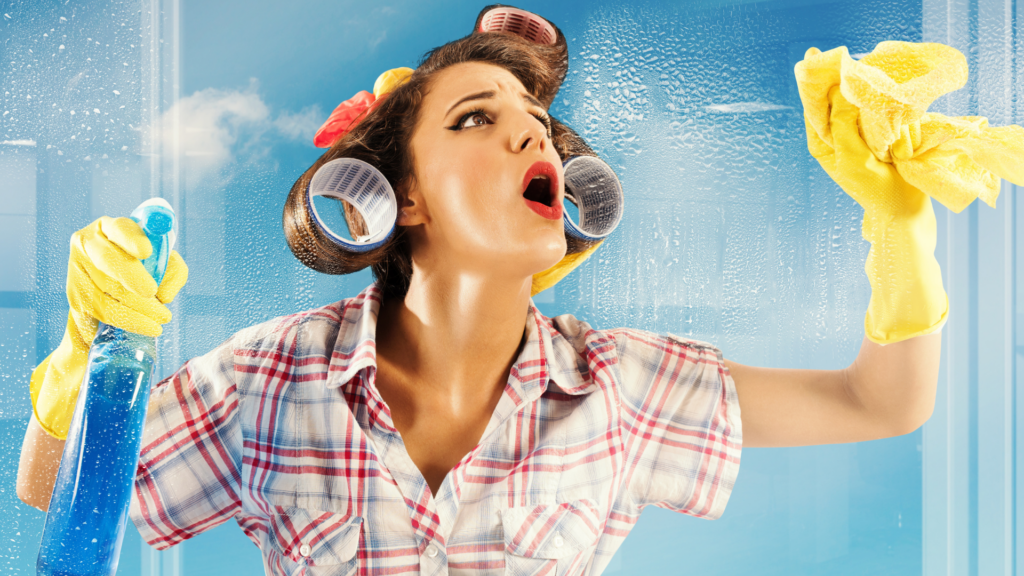
Hard water contains high levels of minerals like calcium and magnesium, which can lead to staining on glass surfaces. When hard water dries on glass, the minerals are left behind and can form a buildup that creates a cloudy or spotty appearance. Over time, these stains can become more difficult to remove, making it important to address them as soon as they are noticed.
Hard water stains on glass can appear as white, hazy spots or streaks that are difficult to remove with regular cleaning methods. Unlike other types of stains, hard water stains are caused by mineral buildup and are not removed by typical cleaning solutions like soap and water. They also tend to form in areas where water is commonly used, such as shower doors, faucets, and windows. If left untreated, hard water stains can become more noticeable and require more intensive cleaning methods to remove.
Tools and Materials for Removing Hard Water Stains
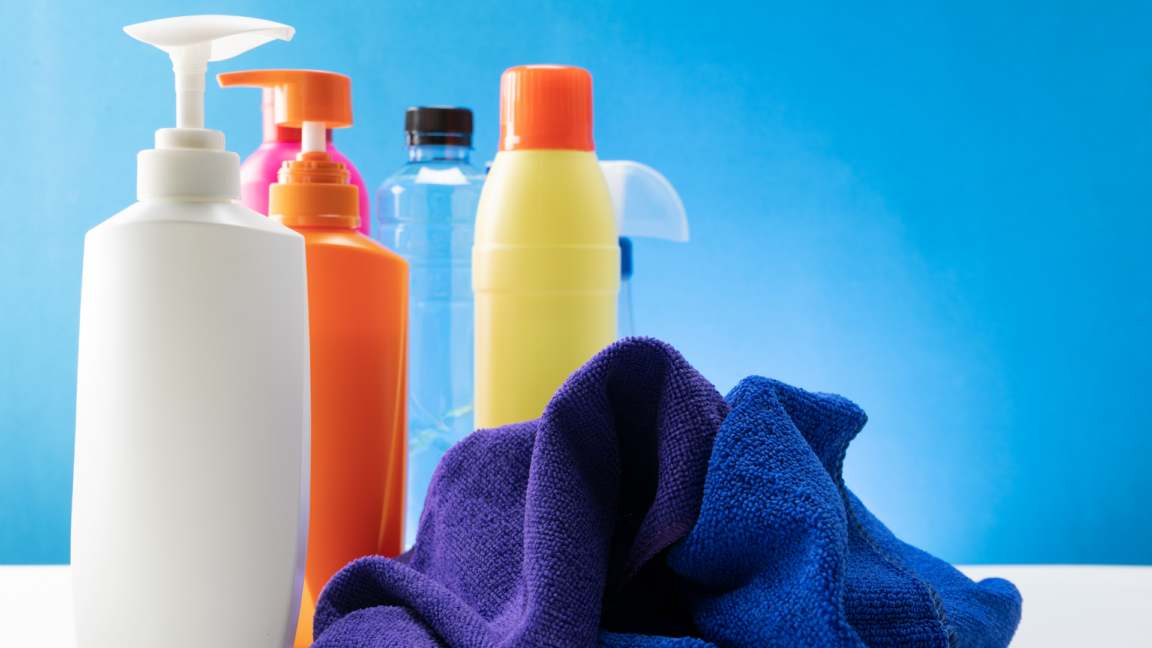
When cleaning hard water stains on glass, it's important to use the proper tools and materials to avoid causing further damage to the glass surface. Some of the tools and materials that are commonly used include white vinegar, baking soda, lemon juice, commercial glass cleaners, a razor blade scraper, and a water softener.
Each of these tools and materials has a specific purpose and can be used in different ways to effectively remove hard water stains. For example, white vinegar and baking soda can be combined to create a paste that is applied to the stained glass surface and left to sit for several minutes before wiping clean with a damp cloth. Commercial glass cleaners are formulated specifically for removing hard water stains and can be purchased at most home improvement or hardware stores.
When using a razor blade scraper, it's important to use a new blade and avoid applying too much pressure, which can scratch or damage the glass surface. Water softeners can also be used to prevent hard water stains from forming in the first place. Overall, using the right tools and materials is crucial to successfully removing hard water stains from glass without causing further damage.
Techniques for Removing Hard Water Stains from Glass
1. Vinegar and Baking Soda
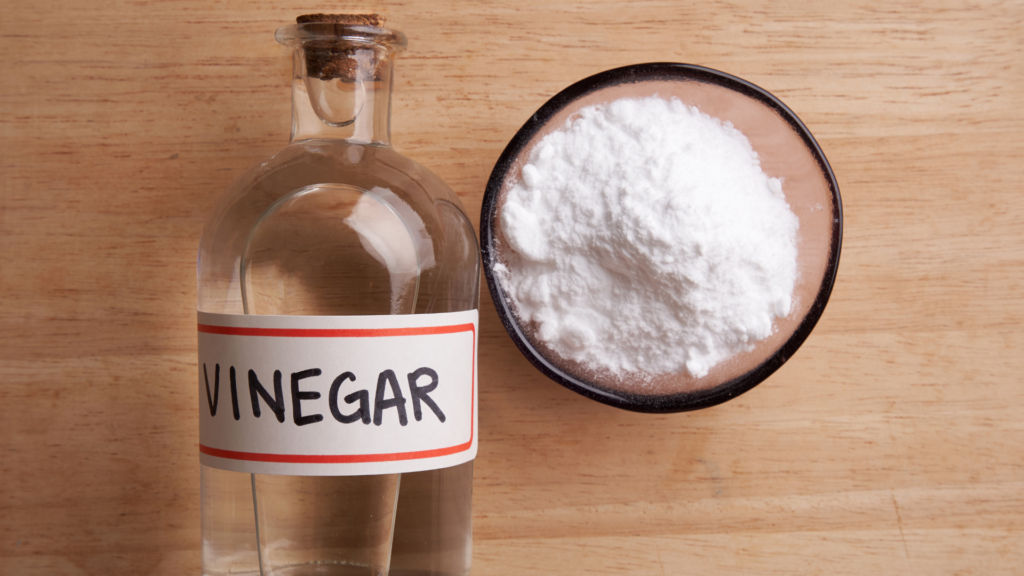
The vinegar and baking soda method is a popular and effective way to remove hard water stains from glass. To use this method, you'll need white vinegar, baking soda, a spray bottle, and a clean cloth.
- Mix a 50/50 solution of white vinegar and water in a spray bottle.
- Spray the solution onto the hard water stains on the glass.
- Sprinkle baking soda onto the stained areas, making sure to cover them evenly.
- Let the solution sit for about 5-10 minutes, allowing it to break down the mineral buildup.
- Scrub the stained areas gently with a clean cloth or soft-bristled brush.
- Rinse the glass surface thoroughly with water.
- Dry the glass with a clean towel or squeegee.
The combination of vinegar and baking soda works to break down the minerals in hard water stains, making them easier to remove. Vinegar's acidic properties dissolve the minerals, while baking soda's alkaline properties help to neutralize the acid and create a foaming action that helps to lift away the stains. This method is typically safe for most glass surfaces, but it's important to test it on a small, inconspicuous area first to ensure that it doesn't cause any damage or discoloration.
2. Commercial Glass Cleaners
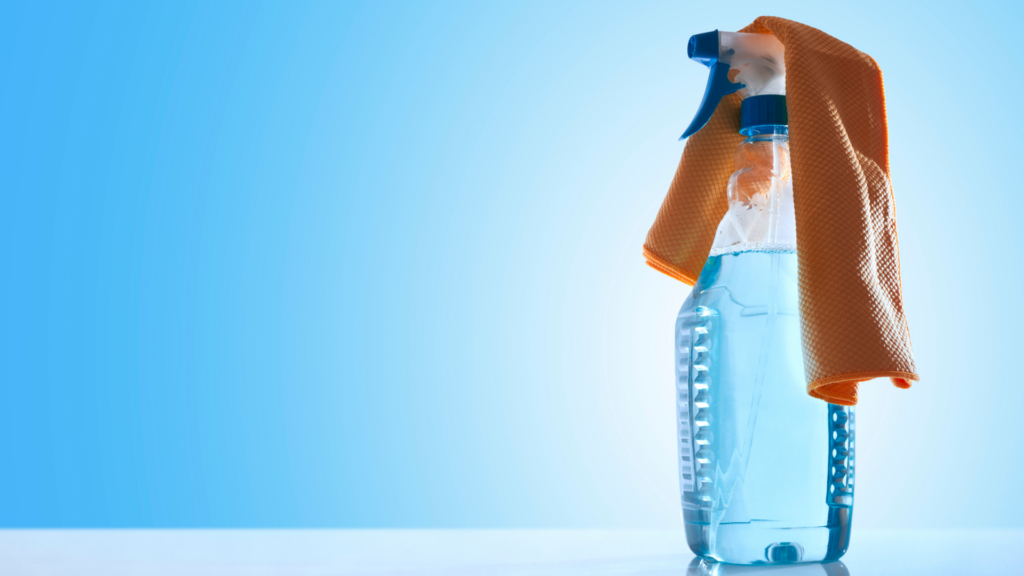
Commercial glass cleaners are formulated specifically to remove hard water stains from glass surfaces. To use this method, you'll need a commercial glass cleaner, a clean cloth, and possibly a scrub brush for tougher stains.
- Spray the glass cleaner directly onto the hard water stains on the glass surface.
- Let the cleaner sit for a few minutes, allowing it to penetrate the stains.
- Use a clean cloth to wipe away the cleaner and the stains. For tougher stains, a soft-bristled scrub brush can be used to gently scrub the surface.
- Rinse the glass surface thoroughly with water.
- Dry the glass with a clean towel or squeegee.
Commercial glass cleaners are designed to break down and dissolve hard water stains, making them easy to wipe away. They typically contain ingredients like citric acid or acetic acid, which work to dissolve the minerals in the stains. Some commercial glass cleaners may also contain surfactants, which help to lift away dirt and grime from the glass surface. When using a commercial glass cleaner, it's important to follow the instructions carefully and avoid using abrasive scrubbers or tools that could scratch the glass surface.
3. Lemon Juice and Salt
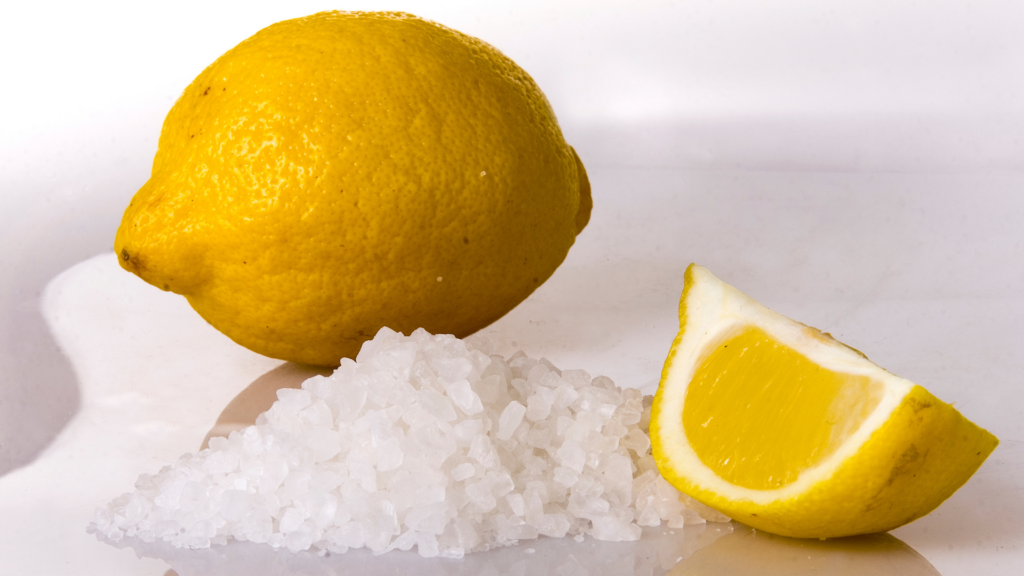
Lemon juice and salt are an effective and natural way to remove hard water stains from glass surfaces. To use this method, you'll need fresh lemon juice, table salt, and a clean cloth.
- Squeeze fresh lemon juice onto the hard water stains on the glass surface.
- Sprinkle salt onto the lemon juice, making sure to cover the stained areas evenly.
- Let the solution sit for about 5-10 minutes.
- Use a clean cloth to scrub the stained areas gently.
- Rinse the glass surface thoroughly with water.
- Dry the glass with a clean towel or squeegee.
The citric acid in lemon juice works to dissolve the minerals in hard water stains, while the abrasive texture of salt helps to lift away the stains. This method is safe for most glass surfaces and is a natural alternative to harsh chemical cleaners. However, it's important to avoid using too much force when scrubbing the glass, as this could cause scratches or damage to the surface. Additionally, it's important to test the lemon juice and salt mixture on a small, inconspicuous area first to ensure that it doesn't cause any damage or discoloration.
4. Razor Blade Scraper
A razor blade scraper can be an effective tool for removing hard water stains from glass surfaces. To use this method, you'll need a razor blade scraper, a clean cloth, and possibly a spray bottle of water.
- Hold the razor blade scraper at a 45-degree angle and carefully scrape the hard water stains from the glass surface. Be sure to use gentle, even pressure and keep the blade flat against the glass to avoid scratching the surface.
- Use a clean cloth to wipe away any debris or residue from the surface.
- If needed, spray a fine mist of water onto the glass surface and wipe it away with a clean cloth.
Using a razor blade scraper can be an effective way to remove tough hard water stains from glass surfaces, especially on shower doors or windows. However, it's important to use caution when using a razor blade scraper to avoid scratching the glass surface. This method should only be used on flat glass surfaces, and not on textured or curved glass. It's also important to note that this method should be used as a last resort, as it can potentially damage the glass surface if not done carefully.
5. Water Softener
Installing a water softener is a preventative measure that can help to reduce and eliminate hard water stains from glass surfaces. A water softener works by removing the minerals that cause hard water, such as calcium and magnesium, from your water supply. This helps to prevent the buildup of these minerals on glass surfaces, making it easier to keep them clean and free of stains.
To install a water softener, you'll need to hire a professional plumber to assess your water supply and install the appropriate equipment. This typically involves installing a water softening system, which may include a tank, a brine tank, and a control valve.
Once the water softener is installed, you should notice a significant reduction in the amount of hard water stains on your glass surfaces. You can also use any of the other methods mentioned, such as vinegar and baking soda or lemon juice and salt, to clean any remaining stains that may appear.
Using a water softener is a long-term solution to hard water stains on glass surfaces. While it requires an initial investment and ongoing maintenance, it can save you time and effort in the long run by making it easier to keep your glass surfaces clean and free of stains.
Prevention
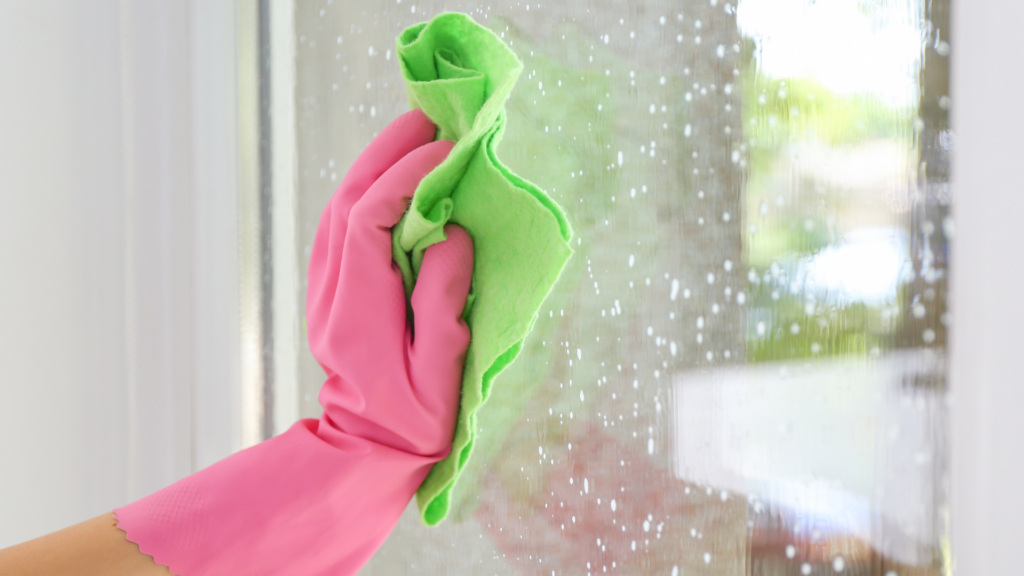
To prevent future hard water stains on glass surfaces, there are a few tips and tricks to keep in mind. First, consider installing a water softener, as mentioned earlier. You can also wipe down glass surfaces regularly with a squeegee or microfiber cloth after each use to prevent water from sitting on the surface and forming stains. Additionally, avoid using abrasive or acidic cleaners on glass surfaces, as these can cause damage and create etching that can make it easier for hard water stains to form.
Regular cleaning and maintenance of glass surfaces is also important to prevent hard water stains. By cleaning your glass surfaces on a regular basis, you can remove any buildup of minerals and prevent stains from forming. You can use any of the methods mentioned earlier, such as vinegar and baking soda or lemon juice and salt, to clean your glass surfaces. It's also important to avoid letting stains sit for too long, as this can make them more difficult to remove. By incorporating regular cleaning and maintenance into your cleaning routine, you can keep your glass surfaces looking clean and clear for longer periods of time.
Conclusion
By following the techniques and tips outlined in this post, you can easily remove hard water stains from your glass surfaces and enjoy a crystal-clear view once again. Whether you opt for natural solutions like vinegar and baking soda or commercial glass cleaners, or invest in preventative measures like a water softener, there's a solution that can work for you. And by incorporating regular cleaning and maintenance into your routine, you can help prevent future stains from forming and keep your glass surfaces looking their best. So say goodbye to those pesky hard water stains and hello to sparkling, crystal-clear glass!
Find your ideal property, available for sale or rent in the best prices possible, or list your property for sale or rent here. Alternatively, if you have any further questions, please get in touch with us:
You may also be interested in:



